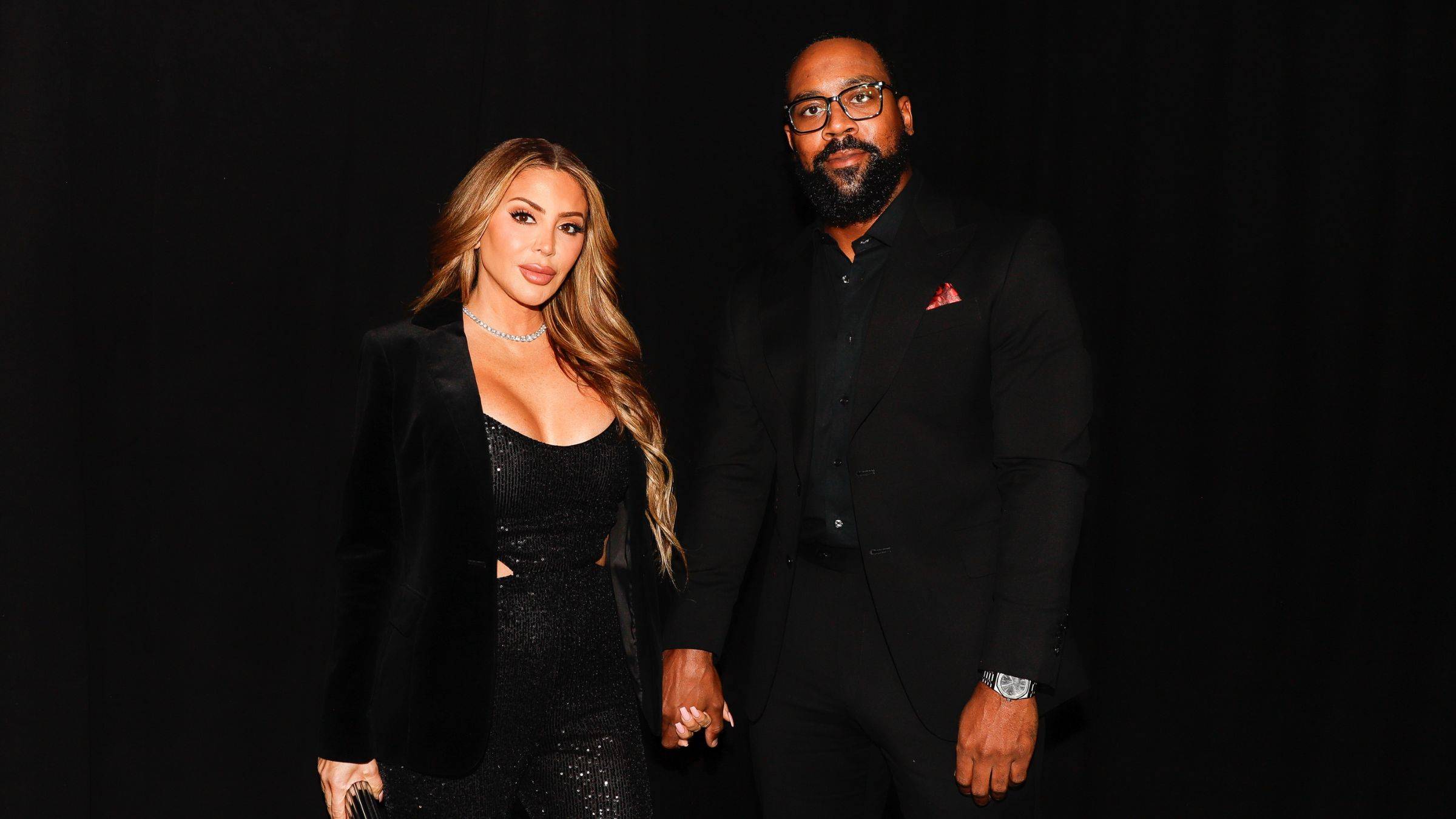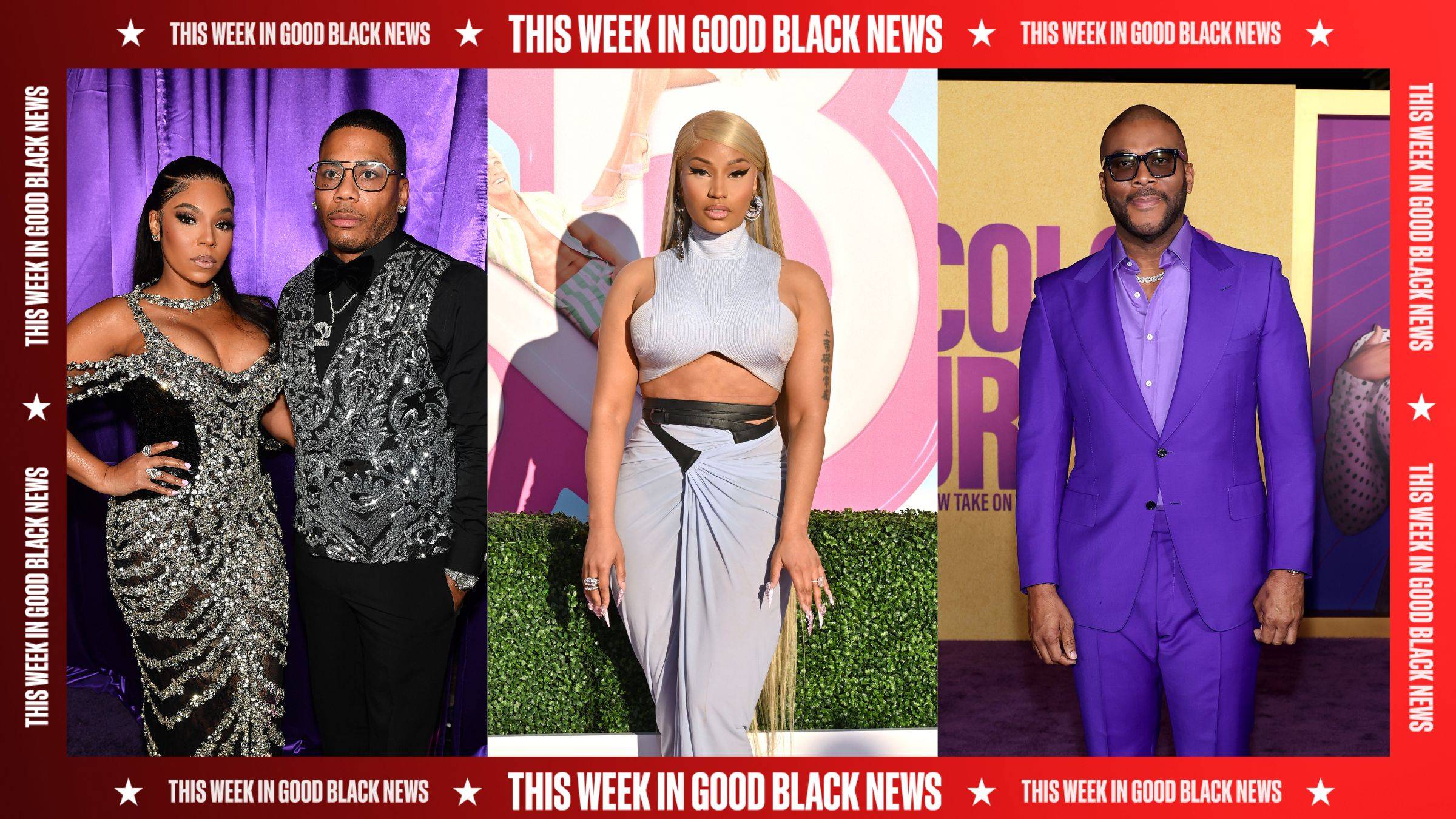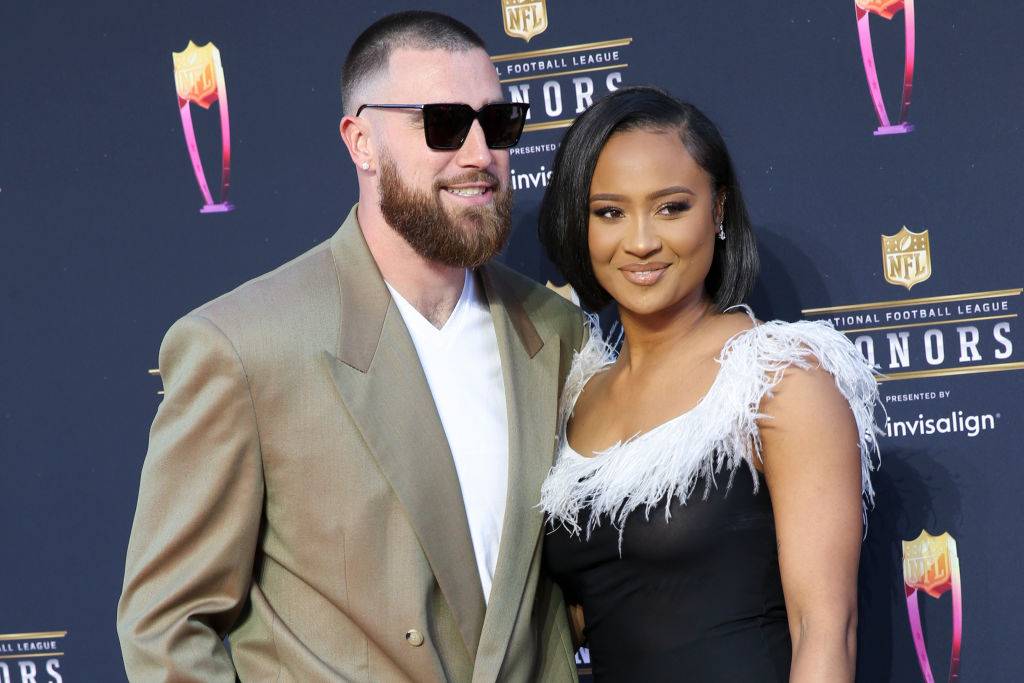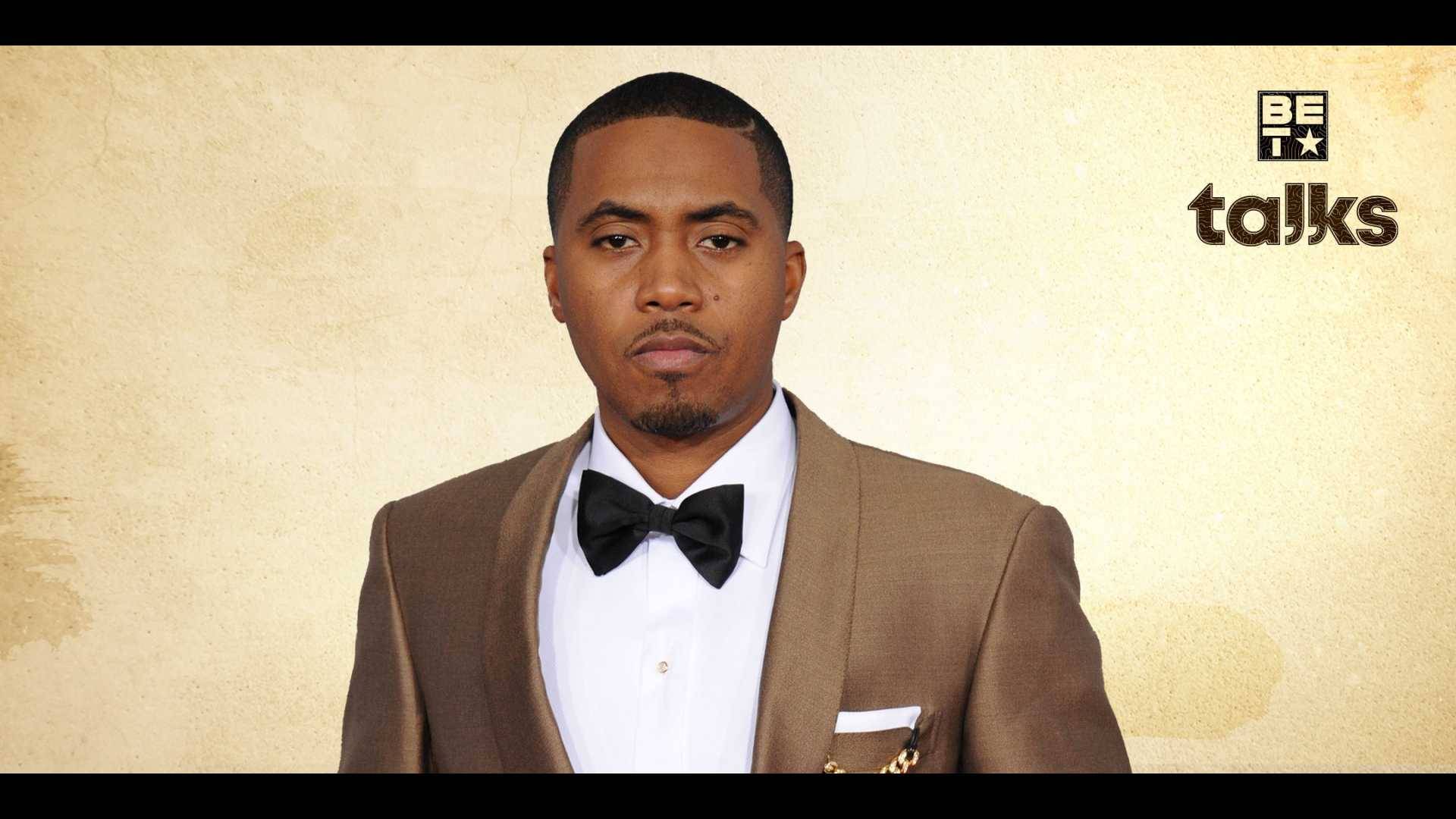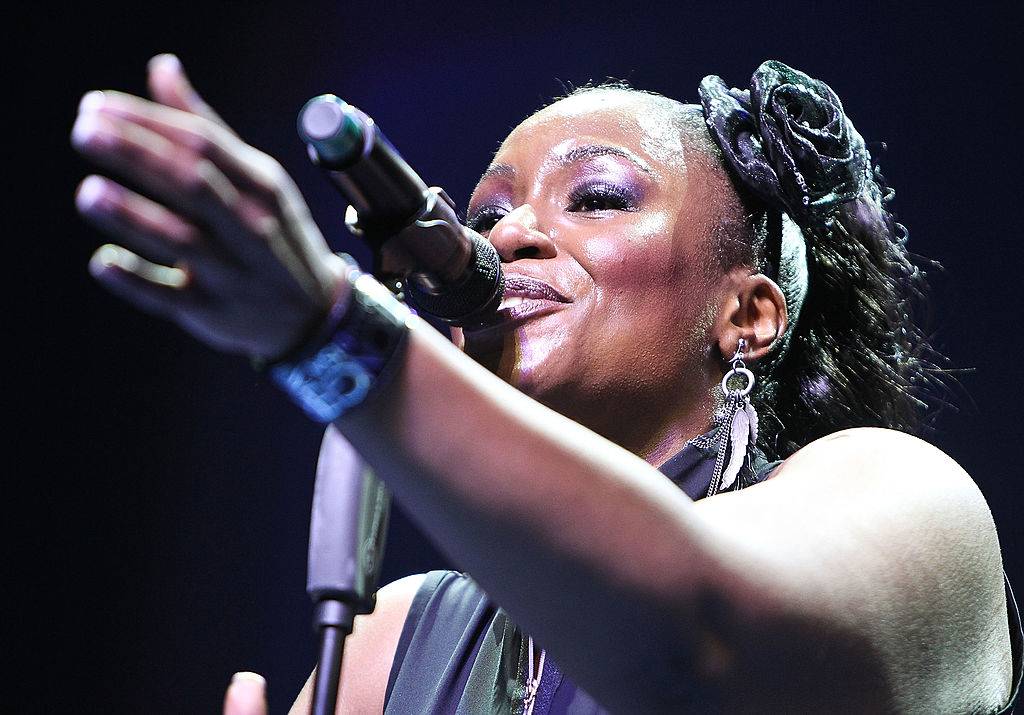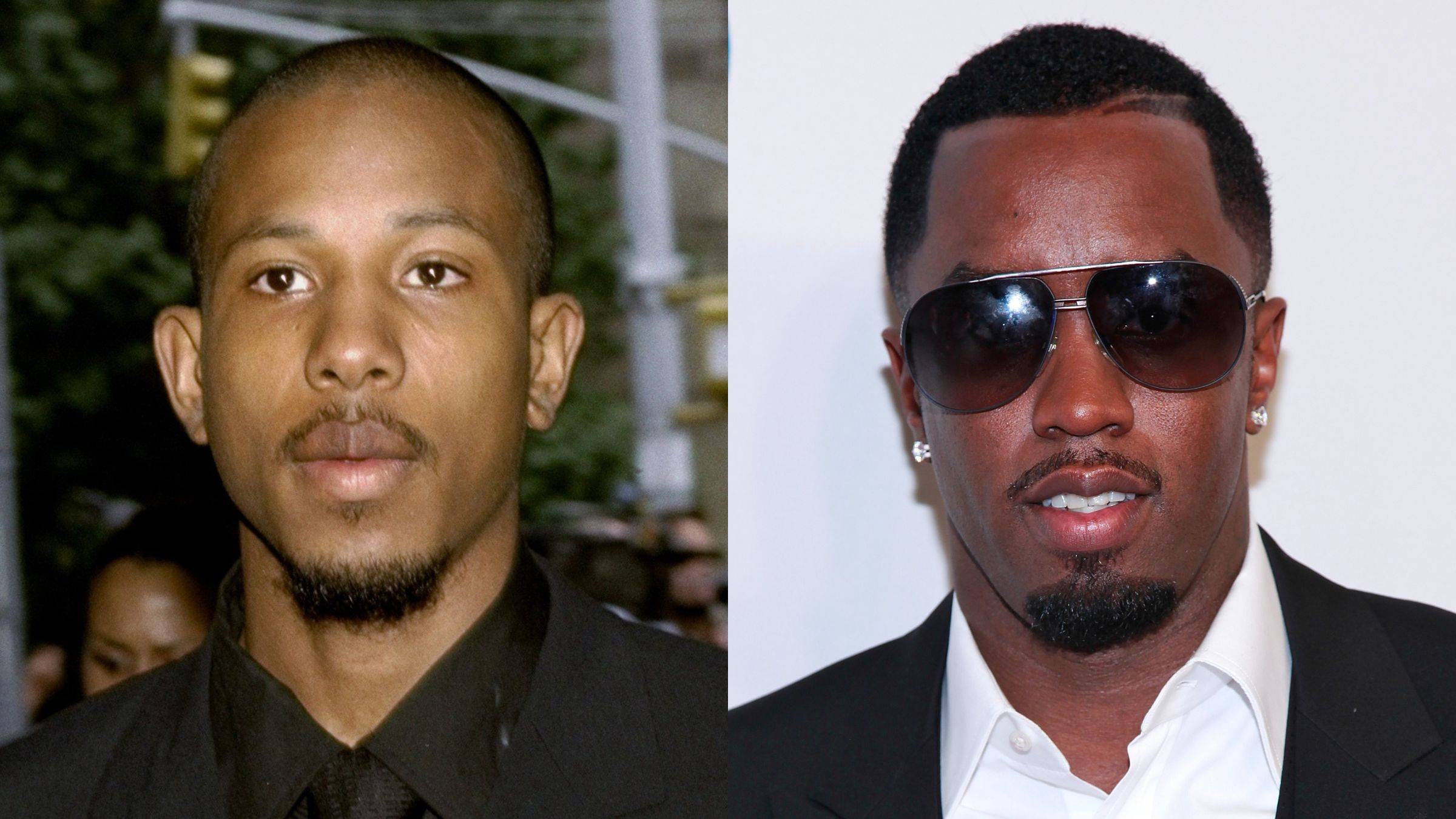EXCLUSIVE: Diallo Riddle On How 'The Simpsons' Inspired His New Comedy ‘South Side’

Diallo Riddle is a man of many talents. He’s an Emmy-nominated writer, television producer, actor, showrunner, and a DJ versed in many genres. He, along with his writing partner, Bashir Salahuddin, first came to prominence as writers and performers on Late Night With Jimmy Fallon. (They received their Emmy nomination for their work on the show.) Riddle was also a writer for the television specials Taraji and Terrence’s White Hot Holidays and The Maya Rudolph Show, has starred in the NBC sitcom Marlon, and is a writer on Tracy Morgan’s The Last O.G. If that’s not enough, the Atlanta native nabbed two nominations from the Writers Guild of America Awards.
We caught up with Diallo and spoke about the challenges of being a Black creative in Hollywood, his love of '90s R&B groups, and his new comedy, South Side, debuting on Comedy Central on Wednesday, July 24.
BET: When you were a student at Harvard, did you know you wanted to work in comedy?
Diallo: No not at all, I was an economics major. But the biggest event that happened to me at Harvard was that I met Bashir there. Ironically, we met in an a capella group. Not in a comedy sketch group but an a capella group. We actually thought that we were gonna be like Jodeci, Shai, Dru Hill, and all those great '90s R&B groups. You know we had to have matching sweaters? We were trying to be the generation of Black men professing our love for women in matching sweaters.
Back then, we would hit every coffee shop in Boston in our matching Crimson sweaters and singing songs. And, you know, a friendship formed. We figured out that we thought a lot of the same stuff was funny. After we graduated, I didn't know what I was going to do. I was letting my whole family down. I've gone to college, this prestigious school with no plan. My family was like, “How did this happen?” Eventually we both ended up in Los Angeles. We were still trying to find our way, and I was actually a professional DJ out in Los Angeles.
Bashir was doing a play here or play there, but neither one of us was really where we wanted to be. It was my mother's suggestion that we should start writing comedy. She said, “You guys should just start writing it down and going through that whole track.” So instead of mid-life crisis, we had a quarter-life crisis. And that quarter-life crisis led us to where we are today. More [important] than any class at Harvard, me and Bashir forged a friendship that has lasted almost 20 years.
BET: Most people caught you on their radar when you worked on Late Night With Jimmy Fallon. You and Bashir wrote some classic sketches like “Slow Jam the News,” “The History of Rap” and “Milky J.” How was it working on late-night TV?
Diallo: Let me say to Jimmy's credit, the very first writers that they brought on to invent Late Night With Jimmy Fallon were all super new and hungry. A.D. Miles was the head writer and helped to develop the show. He brought in a guy named Mike DiCenzo from The Onion, who is hilarious. He produced the "Wheel of Musical Impressions" and "Classroom Instruments" sketches. There was also Albertina Rizzo and so many others.
Jimmy was not only completely involved in the show, but he brought in me and Bashir, who literally had one credit on our resume. He brought in all super new hungry people who he thought was funny, and I think that’s why the show didn't feel like Conan or Jay Leno. It just felt like something brand new. Because he brought in brand new people and took a chance on us, I will forever be grateful.
I also wanna give a shout out to David Allen Grier, who gave us our first jobs on TV. It was for two months on Comedy Central called Chocolate News.
BET: I remember that. I loved that show.
Diallo: Yeah. But let me tell you the truth: We were the “baby writers.” We only got like two jokes in the script for the entire show. All the other writers have been there, have been with David since In Living Color. We were absolutely brand new. It was a weird experience because people would say, “Yo, I love Chocolate News.” Cool, we didn’t really get no jokes on there. Other people were like, “Yo, we hate Chocolate News.” Cool, we didn’t really get no jokes on there.
But we love David. To this day, I feel like David has looked out for us. If you talk about somebody who I want to work with, I would love to work with David on something, on anything.
BET: I got a chance to look at the first episode of South Side. Matter fact, I watched it numerous times and I think it’s hilarious. It's very specific because it revolves around a Rent-T-Own spot. How did you two decide on that?
Diallo Riddle: It never really occurred to me what the business model was. Bashir has a family friend, the guy who plays “Q,” the manager of Rent-T-Own. Yeah, he actually worked at Rent-A-Center for years and would tell Bashir all these crazy stories about working there and how they would both go to drop off stuff and then they would have to go back to some of these places and repossess the same stuff. Anytime you hear about the various tragedies of being poor and the challenges with being Black in this country, there's usually, in a weird way, some comedy there. That's really where this show came out of. It was the real life stories of what this guy has gone through.
BET: Throughout the show, you really show how these Rent-T-Own places only exist in the inner-city, specifically targeting a certain demographic.
Diallo Riddle: We actually make a good point, I think, later in the season that everybody using these kind of companies, they're not all Black. They have to go to the North Side to repossess something, and you start to see how even people on the North Side can be living above their means. In some ways, our argument is maybe just based as much in class as it is in race, but this is still a Black show. So we're still going to make those inside references familiar to Black Chicago, from Kanye West to Harold Washington.
BET: It’s almost like the “everydayness” of Black life on the South Side and the city of Chicago are both characters on the show.
Diallo Riddle: Yeah. On South Side, we tried to make Chicago our own Springfield. The first thing that Bashir and I ever formed a friendship around was The Simpsons. We always said, you follow the Simpsons family, but really, you tuned in for all the people who live in Springfield. That's what makes the show great. So we’re using the South Side of Chicago, and by extension, Chicago, in general, as our Springfield.
Not to get too serious, but these Rent-T-Own places are, like, based around predatory lending. When you spend $20 In a week on an Xbox, it adds up to way more than if you just saved up the money and bought it. They really are taking advantage of the people. One of my favorite lines in the entire season comes in episode five, when that character Bluto goes on trial for something that I don’t want to spoil. But I will say that there's nothing more expensive than being broke. We're trying to make people laugh, but at the same time, we're trying to raise their awareness of the things that are going on in the world.
BET: With all of the challenges of coming up on the South Side, in the first few minutes of the pilot, we learn that two brothers have graduated from community college, which is a great accomplishment. They’re excited about it too.
Diallo Riddle: Exactly! When we first started writing the show, we thought about announcing at the end of every episode whatever went wrong. No matter what happens in the episode, the episode would always end with a news report about the worst thing that happened in the episode. Let's say a fight breaks out at a party, it's all positive for most of the episode, then at the very end, it's like, “Tragedy on the South Side of Chicago as a fight breaks out.” (Laughs Out Loud!)
We feel like the news and various politicians do as much as they can to give Chicago a straight-up frightening reputation. Bashir and his brother, Sultan, who plays Simon, and almost every single cast member grew up on the South Side. We wanted to make it clear to Chicago, and the South Side community, specifically, that whether it was the people in front of the camera, the writers room, with the exception of me, from Atlanta, everyone else was raised in Chicago. We strove for a level of authenticity from the cast to the writers, even the background players, like when you see that bus driver talking, I think it's in episode two. He’s actually the real bus driver of the city. We are trying to give people from Chicago, living in Chicago, a chance to play themselves.
BET: There’s always been a lack of diversity in film and TV on the creative side in Hollywood. How do you navigate those spaces as a Black creative?
Diallo Riddle: To be a Black creative is to really try to find a place that will let you do you. There were times where I feel like executives tried to steer us in a certain direction, and then nobody was happy with the results. But to Comedy Central's credit they let us be us. And also to this other network that we have another show coming out on. Within the span of two years, we came across two networks that actually just let us do what we wanted to do. I feel like that has made all the difference. To your point, when you're a Black creative, the executive wants that on their resume, that they worked with a Black creator, but they want to steer you towards what they think is good. I think that the best executives do what Jimmy originally did with us. He just said, “I trust you. Now let's go off and do something great.”
